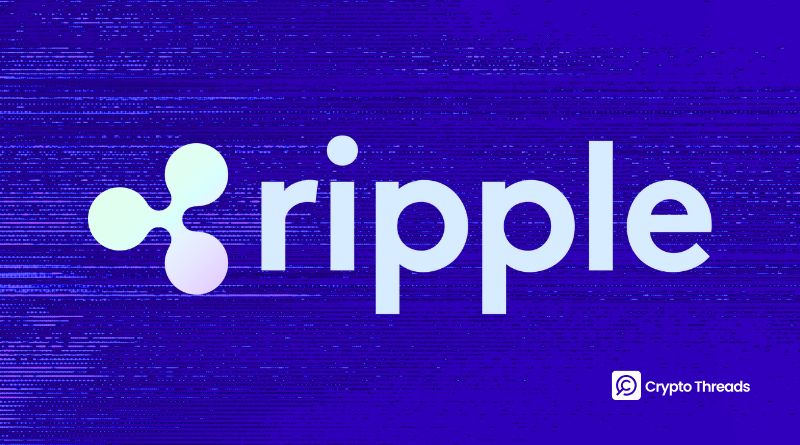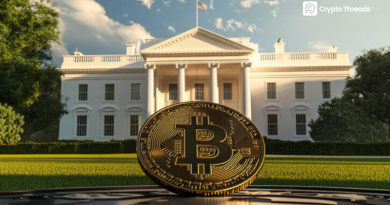Ripple Forges Strategic Partnership with UAE: Digital Payment Infrastructure in the Middle East

Ripple’s High-Level Talks with UAE Officials Shape Future of Digital Payments
In a significant development for the cryptocurrency and blockchain industry, Ripple has held strategic discussions with United Arab Emirates (UAE) officials to explore digital payment infrastructure and accelerate financial innovation in the region. The talks, which took place during the prestigious Dubai Fintech Summit in May 2025, signal Ripple’s continued expansion in the Middle East and highlight the UAE’s commitment to becoming a global hub for digital finance.
Ripple President Monica Long led the delegation that met with high-ranking UAE officials, including Sheikh Ahmed bin Saeed Al Maktoum, to discuss potential collaborations in developing advanced payment systems powered by blockchain technology. The meeting focused on integrating Ripple’s enterprise blockchain solutions into the UAE’s ambitious digital transformation initiatives.
“We continue to be impressed with the leadership demonstrated by Dubai as it establishes itself as one of the world’s leading hubs for digital assets,” Ripple stated in an official communication following the high-profile meeting.
UAE’s Vision for Next-Generation Payment Infrastructure
The discussions between Ripple and UAE officials align perfectly with Dubai’s D33 economic plan, which aims to position the emirate as one of the top four global financial centers and generate AED100 billion in yearly digital revenue by 2033. This strategic initiative seeks to leverage cutting-edge technologies like blockchain to create a more efficient, transparent, and accessible financial ecosystem.

The UAE’s Financial Infrastructure Transformation Programme, which is already 85% complete according to recent reports, provides the perfect foundation for Ripple’s blockchain-based payment solutions. This program aims to modernize the country’s financial infrastructure, enabling faster settlements, reducing costs, and enhancing security for cross-border transactions.
Dubai’s strategic location as a bridge between East and West positions it as an ideal hub for international finance, with over $400 billion in annual international trade flows. By incorporating Ripple’s blockchain technology, the UAE can significantly enhance its payment capabilities and strengthen its position as a global financial innovator.
Regulatory Framework Supporting Crypto Innovation
The UAE has established itself as a leader in creating a balanced regulatory environment for digital assets, with multiple frameworks in place to support innovation while ensuring compliance and security:
- The Dubai Financial Services Authority (DFSA) recently granted Ripple a license to provide regulated crypto payment services in the Dubai International Financial Centre (DIFC)
- The Virtual Asset Regulatory Authority (VARA) established in 2022 as the world’s first independent regulator focused exclusively on virtual assets
- The Abu Dhabi Global Market (ADGM) launched one of the world’s first regulatory frameworks for digital assets in 2018
This regulatory clarity has been instrumental in attracting blockchain companies like Ripple to the region. In March 2025, Ripple became the first blockchain-powered payments provider licensed by the DFSA, allowing it to offer regulated crypto-enabled payment services throughout the UAE.
Additionally, the UAE has eliminated Value Added Tax (VAT) on crypto transactions as of October 2024, further enhancing its appeal as a crypto-friendly jurisdiction. This tax exemption, coupled with a progressive regulatory environment, creates an ideal ecosystem for digital payment innovation.
Ripple’s Growing Middle East Presence

Since establishing its regional headquarters in Dubai in 2020, Ripple has consistently expanded its footprint in the Middle East. The region now represents approximately 20% of Ripple’s global customer base, highlighting its strategic importance to the company’s growth strategy.
Ripple’s DFSA license grants it access to the UAE’s substantial cross-border payments market, valued at more than $40 billion. This regulatory milestone positions Ripple to tap into new growth opportunities across the region and beyond, offering its blockchain-based payment solutions to a broader range of financial institutions and businesses.
“Securing this DFSA license is a major milestone that will enable us to better serve the growing demand for faster, cheaper and more transparent cross-border transactions in one of the world’s largest cross-border payments hubs,” said Reece Merrick, Ripple’s Managing Director for Middle East and Africa.
The company’s partnership with the Dubai International Financial Centre (DIFC) Innovation Hub in 2024 has been another crucial element in its regional growth strategy. This collaboration focuses on helping early-stage companies adopt blockchain and cryptocurrency technologies, further cementing Ripple’s influence in the region’s fintech ecosystem.
Market Impact and XRP Performance
The announcement of Ripple’s talks with UAE officials sparked immediate market reaction, with XRP experiencing a significant price surge of 8.2%, moving from $0.52 to $0.563 on major exchanges. Trading volume spiked by 35% within the first hour of the announcement, reflecting heightened investor confidence in Ripple’s strategic expansion and its ability to secure institutional backing in fintech-friendly regions.
This positive sentiment extended beyond XRP, with related payment-focused cryptocurrencies also seeing price increases. The correlation between Ripple’s UAE developments and market performance underscores the importance of regulatory clarity and institutional partnerships in driving cryptocurrency adoption and valuation.
From a technical perspective, XRP’s Relative Strength Index (RSI) on the 1-hour chart spiked to 68 following the news, nearing overbought territory but indicating strong bullish momentum. On-chain metrics also supported this outlook, with XRP’s transaction volume hitting a 7-day high of 1.2 billion XRP moved across wallets, demonstrating genuine market interest rather than speculative activity.
The Future of Blockchain Payments in the UAE

The collaboration between Ripple and the UAE represents a significant step forward in the evolution of digital payment infrastructure in the Middle East. As traditional financial systems continue to digitize, blockchain-based solutions offer unprecedented efficiency, security, and transparency for cross-border transactions.
The UAE’s commitment to becoming a global leader in digital finance, combined with Ripple’s expertise in blockchain technology, creates a powerful synergy that could transform regional payment systems. This partnership may serve as a model for other countries looking to modernize their financial infrastructure while navigating the complex regulatory landscape of digital assets.
Key developments to watch for in the coming months include:
- The potential integration of Ripple’s RLUSD stablecoin into the UAE’s payment infrastructure
- Expansion of Ripple’s services to additional financial institutions across the region
- Possible regulatory frameworks specifically tailored for blockchain-based cross-border payments
- Increased adoption of XRP Ledger technology for financial applications beyond simple payments
Conclusion: A Watershed Moment for Digital Payments
Ripple’s strategic discussions with UAE officials mark a pivotal moment in the evolution of digital payment infrastructure in the Middle East. By combining the UAE’s progressive regulatory environment with Ripple’s innovative blockchain solutions, this partnership has the potential to accelerate financial innovation and establish new standards for cross-border payments worldwide.
As the UAE continues its journey toward becoming a leading global financial hub, collaborations with technology pioneers like Ripple will play a crucial role in shaping the future of finance in the region. With its DFSA license and growing regional presence, Ripple is well-positioned to capitalize on the tremendous opportunities in this dynamic market.
For investors, financial institutions, and the broader cryptocurrency ecosystem, this development signals the increasing mainstream adoption of blockchain technology for real-world financial applications. As regulatory frameworks mature and institutional participation grows, the potential for blockchain to transform global payment systems becomes increasingly tangible.



